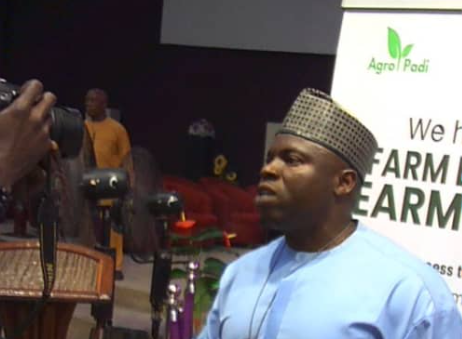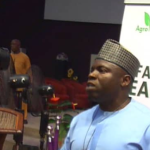In Nigeria’s Delta State, where agriculture is both livelihood and legacy, O’Tega Teminor has emerged as a new voice in the push to digitize farming. The founder of MyAgroPadi, Teminor is spearheading a movement to give smallholder farmers access to tools, knowledge, and markets often reserved for larger agribusinesses.
For decades, African farmers have faced the same challenges: limited access to credit, middlemen dictating prices, and the constant struggle against unpredictable weather. Teminor’s idea is simple but ambitious — bridge these gaps through a hybrid model that combines digital platforms with physical, community-based support.
Launched as a response to the structural problems farmers face, MyAgroPadi aims to break the cycle of disempowerment. The platform connects farmers directly to markets, provides training in modern techniques, and integrates simple digital solutions designed for areas with poor internet access.
In recent months, the initiative empowered 250 farmers in Delta State, offering them not just training but also pathways to sell their produce without falling prey to exploitative intermediaries.
Teminor frames the mission as more than just business. “It’s about restoring dignity to farming,” he often explains. By aligning technology with grassroots realities, MyAgroPadi is positioning itself as both a social movement and a scalable enterprise.
Disrupting an Age-Old Problem
The power of Teminor’s approach lies in its hybrid nature. Unlike many tech platforms that stop at app development, MyAgroPadi combines on-ground training with digital access points, ensuring no farmer is left behind.
The company’s model reflects an understanding of African realities: not every farmer owns a smartphone, and not every community has reliable broadband. To address this, MyAgroPadi leverages low-bandwidth apps, SMS-based updates, and local extension workers to deliver training directly to villages.
This strategy, according to agricultural observers, may be what sets Teminor apart in an industry crowded with tech-first but ground-absent initiatives.
Beyond Farming: Building a Digital Economy Backbone
The relevance of MyAgroPadi goes beyond crops and harvests. In Africa, agriculture contributes nearly a quarter of GDP and employs more than half of the workforce. Yet, the sector remains under-digitized.
By creating structured market access and integrating farmers into digital payment systems, MyAgroPadi indirectly fuels Africa’s digital economy. A farmer with access to fair pricing and mobile payments is not just an agricultural worker — they are also a participant in fintech ecosystems, e-commerce, and regional trade.
For Teminor, the mission is to make agriculture the entry point into Africa’s digital revolution. “You cannot digitize Africa while leaving its farmers behind,” he has argued in public forums, underscoring the link between food security and digital transformation.
Farmers as Co-Creators, Not Beneficiaries
At the heart of Teminor’s philosophy is community engagement. MyAgroPadi operates less like a top-down service provider and more like a partnership builder. Farmers are not treated as passive recipients of aid but as co-creators of the solutions.
This human-centered approach has won him the trust of farming communities, especially in regions where past interventions by governments or NGOs have failed to deliver sustainable results.
By involving farmers directly in the design of tools and training modules, MyAgroPadi strengthens ownership, making its programs more likely to last.
Scaling the Vision
The challenge now is scale. With early successes in Delta State, the question is whether MyAgroPadi can replicate its model across Nigeria — and eventually Africa — without losing the grassroots connection that makes it effective.
Expansion requires capital, policy support, and reliable partnerships. Teminor is already engaging with stakeholders, from local cooperatives to international organizations, in a bid to widen MyAgroPadi’s footprint.
Observers argue that if successful, the platform could provide a blueprint for Africa’s tech-driven agricultural future.
The Bigger Picture
O’Tega Teminor represents a new generation of African entrepreneurs who see agriculture not as an outdated sector, but as a fertile ground for innovation. His work demonstrates that the future of Africa’s digital economy will be written not only in urban tech hubs but also in the rural farmlands where most of the population still lives.
For now, Teminor remains grounded in his mission. “Agriculture is more than food,” he often notes. “It is dignity, it is livelihood, and it is the future of our economy.”
As Africa navigates the 21st century, the intersection of technology and agriculture will determine whether its digital economy can be inclusive. O’Tega Teminor’s MyAgroPadi is showing that solutions must start where the people are — in the fields.
If Africa is to digitize, it must also feed itself. And in bridging that gap, Teminor is ensuring that the farmer, too, has a seat at the digital table.
Talking Points
It’s shocking that in 2025, a tomato farmer in Delta still struggles to access fair pricing while people in Lagos are buying virtual land in the metaverse.
The digital divide is not just about urban vs. rural internet access — it’s about whether Africa’s biggest workforce (farmers) gets to benefit from the economic systems being built. MyAgroPadi’s approach is a reminder that you can’t build a “digital Africa” while sidelining its farmers.
Silicon Valley-inspired start-ups are popping up everywhere in Africa, but most are designed for the urban elite. O’Tega Teminor’s model challenges this urban obsession by proving that tech must get its hands dirty — literally.
Until African tech start-ups embed themselves in real economic sectors like farming, their impact will remain superficial. Tech that does not touch soil is tech without roots.
Here’s the controversial part: why must young entrepreneurs like Teminor carry the burden of agricultural digitization when African governments have ministries and billions in agricultural budgets?
If governments were doing their jobs, platforms like MyAgroPadi would be scaling nationwide by default, not fighting for funding or recognition. The silence of policymakers in amplifying such solutions is either incompetence or deliberate neglect.





